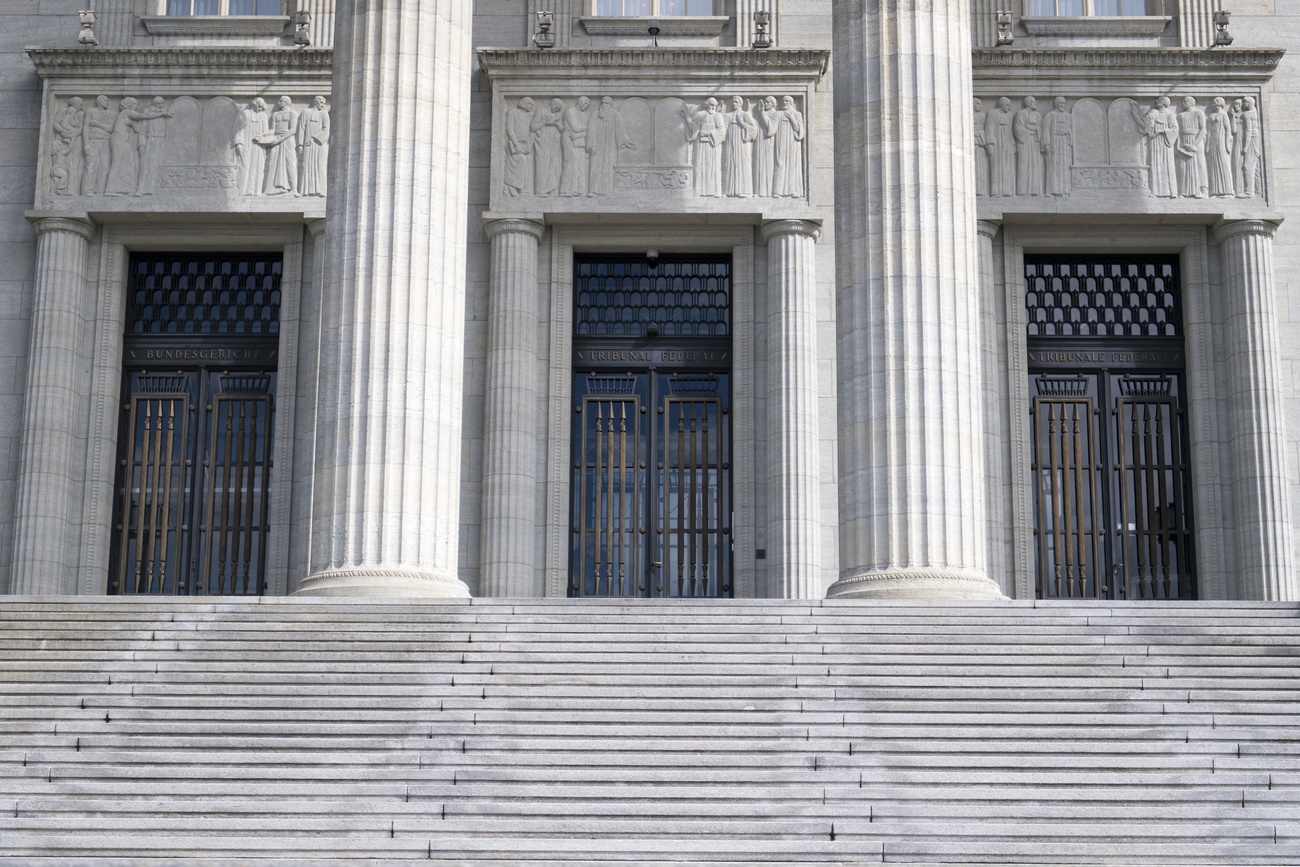
Swiss court ruling: only mothers have legal say in abortion cases

Switzerland’s highest court has ruled against the father of an unborn child, who had sued his ex-partner for terminating pregnancy at an advanced stage.
Abortions are legal in Switzerland if they take place in the first twelve weeks of pregnancy. If a woman has an abortion later, she is punished with up to three years in prison – unless she was deemed to be in an emergency situation.
After a man from the Swiss canton of Fribourg reported his ex-girlfriend for a late-term abortion, the public prosecutor’s office dropped the case as doctors confirmed that the women was in a state of psychological distress.
The man however fought this case up to the level of the Federal Court. He was of the opinion that, as the father of the unborn foetus, he was a “victim” under the definition of the law.
+ How Swiss abortion rights compare internationally
The highest Swiss court sees things differently: it states that the ban on late-term abortions protects the unborn child, not the man involved. And because a foetus does not have legal personality before birth, the father cannot be regarded as a victim. The man from Fribourg could thus not lodge a complaint, the court said.
“The position of the man is extremely weak,” says law professor Bijan Fateh-Moghadam from the University of Basel. “It is up to the mother alone to decide whether to terminate a pregnancy.”
Neither does the father need to be involved in late-stage abortions. The legal scholar believes it is right that the law protects mothers from being pressurised by their partners.
Amnesty International Switzerland takes the same view. “No third party should have the right to oppose a pregnant person’s decision,” says campaigner Cyrielle Huguenot. This is solely the decision of the pregnant woman.
+ Women seeking abortion still experience stigma in Switzerland
Amnesty even wants a complete decriminalisation of abortions, in which case women would not even be penalised for late terminations. However, this is a question that must be decided politically. In the meantime, the Federal Court’s judgement has merely clarified that the father cannot do anything about it if the authorities classify an abortion as legal.
The decision has also been welcomed by the umbrella organisation of Swiss men’s and fathers’ organisations.
“The judgement is correct – indeed, there is no alternative,” says the group’s managing director Markus Theunert. The umbrella organisation understands the father’s wish to have a say. However, “the only way to enforce the father’s right to have a say would inevitably involve men deciding on a woman’s physical integrity” – which is unacceptable, says Theunert.
Translated from German by DeepL/dos
This news story has been written and carefully fact-checked by an external editorial team. At SWI swissinfo.ch we select the most relevant news for an international audience and use automatic translation tools such as DeepL to translate it into English. Providing you with automatically translated news gives us the time to write more in-depth articles.
If you want to know more about how we work, have a look here, if you want to learn more about how we use technology, click here, and if you have feedback on this news story please write to english@swissinfo.ch.

In compliance with the JTI standards
More: SWI swissinfo.ch certified by the Journalism Trust Initiative
















![The four-metre-long painting "Sonntag der Bergbauern" [Sunday of the Mountain Farmers, 1923-24/26] had to be removed by a crane from the German Chancellery in Berlin for the exhibition in Bern.](https://www.swissinfo.ch/content/wp-content/uploads/sites/13/2025/12/01_Pressebild_KirchnerxKirchner.jpg?ver=a45b19f3)











You can find an overview of ongoing debates with our journalists here . Please join us!
If you want to start a conversation about a topic raised in this article or want to report factual errors, email us at english@swissinfo.ch.